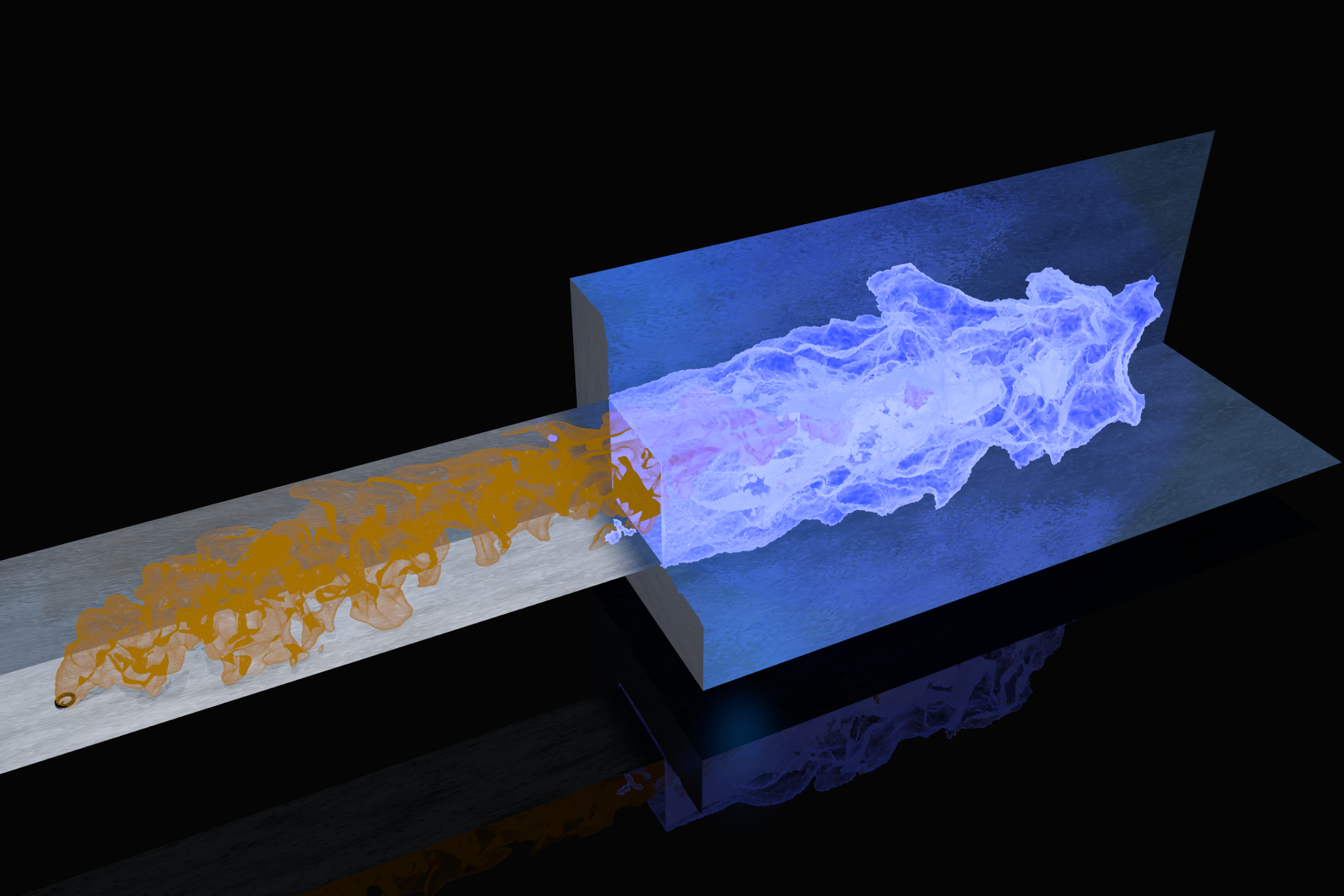Tomorrow's Sequential Combustion Technologies for Low Emissions and High Fuel Flexibility
A challenging research project conducted at the CAPS laboratory aims at addressing the problem of combustion instabilities in a new type of gas turbine combustion chamber. This technology step change is based on constant pressure sequential combustion architectures. It provides higher fuel flexibility (natural gas, but also bio- and syn(thetic)- gas), higher operational flexibility, and higher efficiency compared to conventional single stage combustion chambers.
Combustion represents 90 percent of worldwide energy production and will continue to be the dominant source for power generation over the upcoming decades. In parallel, renewable sources capacities are also constantly growing and their integration into the existing networks has negative consequences on the grid stability because of their intermittent nature. One therefore needs fast and powerful enough technologies capable of compensating the rapid changes in power demand due to fluctuating wind and solar sources. Gas turbine platforms exhibit much faster start-up, loading and de-loading capabilities than coal and nuclear power plants. In addition, their CO2, NOx and SO2 emissions are respectively two, four and fifty times lower that coal- or oil- fired plants. Therefore, gas turbine based power plants will play a key role in the future energy networks.
In this context, a challenging research project conducted at the CAPS laboratory aims at addressing the problem of combustion instabilities in a new type of gas turbine combustion chamber. This technology step change is based on constant pressure sequential combustion architectures. It provides higher fuel flexibility (natural gas, but also bio- and syn(thetic)- gas), higher operational flexibility, and higher efficiency compared to conventional single stage combustion chambers. It will be the heart of tomorrow's heavy-duty gas turbines. This experimental, numerical and theoretical research effort is supported by the SNSF.

The ESC member involved in this project is Prof. Nicolas Noiray, head of the Laboratory of Combustion and Acoustics for Power Systems (CAPS). The CAPS Laboratory is engaged in activities that aim at addressing fundamental and practical problems relevant for the development of workable, efficient, robust and sustainable technologies in Energy and Transport sectors. The group focuses on reacting and non-reacting flow control and on the reduction of CO2, pollutants and noise emissions.
